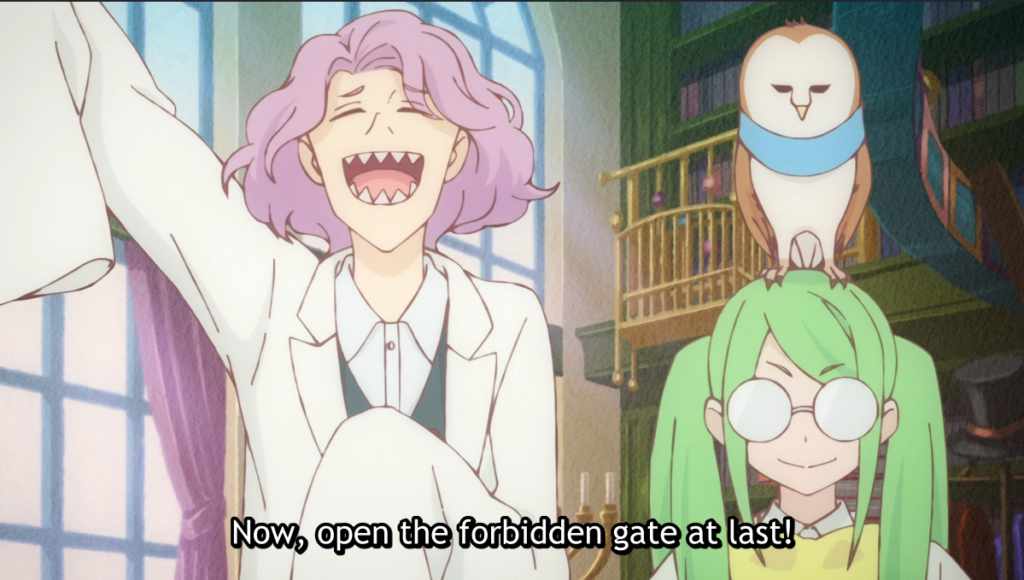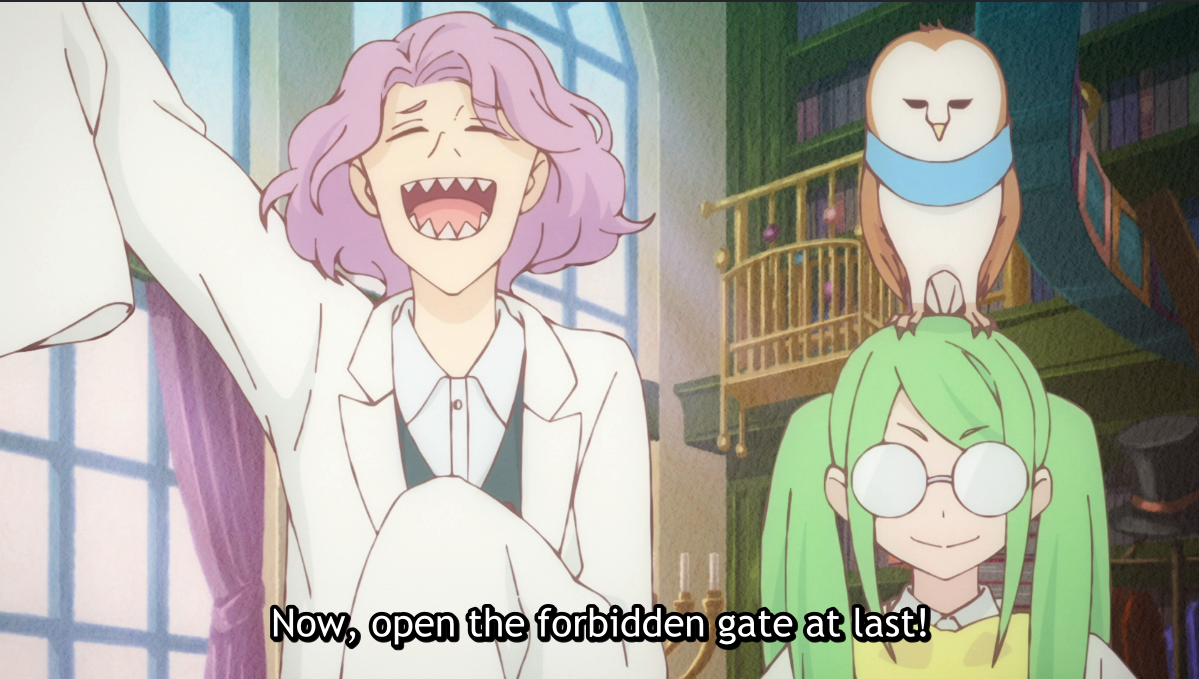Anime Review: The Stories of Girls Who Couldn’t Be Magicians
When Kurumi Mirai was little, she met a mysterious woman in the woods. This woman was a magician, and showed off her power in a cool way. She said that anyone could become a magician, and Kurumi pledged that she too would be a magician when she grew up.
But in Kurumi’s country, only one school, Rettoran Academy, teaches magic, and that only in their prestigious Magius training program for State Magicians. Kurumi studied hard, and did very well in the pre-exams, but on the day she arrived at Rettoran to get her results, Kurumi was informed that she had failed to place in the Magius and would instead be in Standard Program Class One.

Class One has an assortment of students, most of whom weren’t even trying for the Magius program because they have their own life goals. Like Maki Kumiru, Kurumi’s roommate who’s an aspiring dancer. However, Yuzu Edel, a well-bred young lady from a family of magicians, missed “a few” points on the entrance exam, and though she puts on a brave face, it’s clear that she too is bitterly disappointed.
The students of Class One are shocked when they discover that their assigned teacher is Minami Suzuki, a childlike-appearing magician who says that she’s going to teach all of them Ancient Magic!
This Fall 2024 anime was an adaptation of a fantasy prize-winning novel, Mahō Tsukai ni Narenakatta Onna no Ko no Hanashi.
The story is set in an alternative world where “Ancient Magic”, which involves hand drawn sigils, was in theory available to everyone with the right training. Actual talent for it seems to have been a factor, though. Modern magic is produced by “apps” in a notebook and at least in Kurumi’s country is restricted to State Magicians who are public servants who presumably work for the good of everyone. We don’t find out a lot about the culture or government of the country though they definitely don’t have Christmas, only a New Year’s break. Also, while Japanese names predominate, there’s otherwise a random assortment, and the most advanced non-magical transportation is trains.
The aesthetic is very pretty, like watercolor illustrations in a children’s book, and is probably the best thing about this series.
One thing I found fascinating but also frustrating was how low-confrontational the story is. Rettoran’s rules are clearly biased in favor of the Magius students, reserving the most prestigious clubs for them and allowing the Magius to use their magic powers during sporting events against the Standard Program students. But there’s no talk of how this is discrimination or unfair, and none of the Magius lord it over the Standard students, nor does the school administration appear to notice that this is causing problems.
Yuzu and her self-appointed underlings Lemone and Mikana, who in other works would be the “mean girls” are subdued and barely manage a sharp tone once in a while.
Since Kurumi is unable to join the official Mystic Research Club, she’s approached by the renegade Magic Research Club, who look like they might be villains. Nope, they’re at worst eccentric and kind of pushy. The club was not approved not because it would be forbidden for Standard Program students to research magic, but because the Magius student in charge of approving clubs didn’t understand what the point would be. These folks are investigating surges in uncontrolled magical energy on the campus, something neither the administration nor the Magius students seem to have noticed.
When an antagonist does finally appear, that person avoids direct violence, and is less interested in hurting people than disinterested in not hurting non-magical people to attain their goals. And the problem is not solved with violence.
While the primary relationships fall more in line with “romantic two-girl friendship” deniability, a minor character is firmly established as being gay.
I found the ending unsatisfying. While Kurumi and Yuzu’s character arcs are complete, a lot of the subplots are not resolved, the relevance of some recurring characters is not explained, and there’s sequel hooks left lying around, even though this is not a book with a sequel. I also strongly disliked Ms. Suzuki’s actual motivation for teaching the Standard students.
But if you’ve been jonesing for a “magic school” story that has minimal violence and no death, this is an okay show. And the Magic Research Club is fun. Recommended to shoujo fans, especially on the younger end of the scale.

